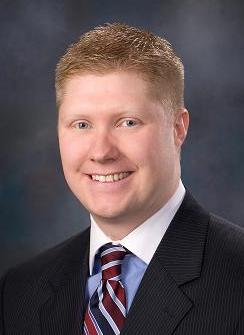To begin, I should be clear that it was never my intention to make a mockery of the legislative process. As someone who has studied the policymaking process and has a graduate level degree in the area, I am particularly sensitive to anything that is detrimenal to the process. I have devoted my professional life to the policymaking process and subsequently I have always and will always take my responsibility as a policymaker seriously and professional. My committement to the process is second-to-none. This is why I regularly vote in opposition to motions on the floor to "suspend rules." The legislative process is sacrosanct and no policy is above the process.
Now on to milk...
Some have hypothesized that I proposed this legislation because I am beholden to the dairy industry. Based upon the overwhelming evidence to the contrary, I don't know how this hypothesis could hold true. If this were true, then I would likey not have been as consistently critical of the industry regarding confinded animal feeding operations (CAFOs) and the environmental impacts of the industry.
Some have said that this legislation is a waste of time. To those, I would make a couple of points. To begin, my motivation for this legislation has always been about finding a way to reduce childhood obesity. The IdahoPTA has identified childhood obesity as one of its primary legislative objectives. They state on their website:
Childhood Obesity 11/05 (R) Idaho PTA will promote the healthy eating habits among children and youth and will support the inclusion of parents and other in determining the use and products of vending machines.
As a parent of three young children, I am particularly concerned with this issue. I don't find anything about childhood obesity laughable and I certainly don't be believe that it is in anyway a waste of time. In addtion to the IdahoPTA, the Alliance for a Healthier Generation, an organization supported by the Clinton Foundation and the American Heart Association, has identified beverage consumption as a major area of concern, but one that is frequently overlooked. From their website:
Beverages are often overlooked, but they are a source of many hidden calories in people’s diets.
- Too Much Sugar: The USDA recommends eating no more than 10 teaspoons of added sugar per day. One can of soda is over one and a half times that!
- Taking Bigger Gulps: Boys today drink, on average, over two 12 ounce sodas a day, with girls averaging almost two a day.
- Two Sodas a Day: A child who drinks two cans of soda per day consumes about eighteen teaspoons of sugar per day just from soda.
Ultimately, the question becomes, "How does making milk the official state beverage impact childhood obesity?" As I have stated on many occassions and in numerous forums, I believe that the State has a role to play in influencing the habits of children. This role, I believe, includes being a proponent of healthy decision making, like drinking milk rather soda pop or certain juices that are loaded with sugar. Are their others things we can do to impact childhood obesity? Yes, there are and we should be doing them, but many of them have the potential to cost the State significantly. Due to the current economic picture, now may not be the time to add an additional expense to the State. This bill has a very limited impact on State funds and can do no harm. I hope this clears up some of the confusion. Please feel free to leave comments if you have them.

